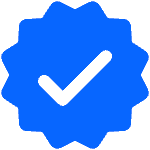Research confirms the power of 3D printing in classroom. In one study, students who used 3D-printed cell models scored significantly higher on understanding cell structures than those who didn’t. With back-to-school season just around the corner, now’s the perfect time to bring hands-on learning into your curriculum.
Whether it’s building geometry tools or biology kits, 3D printing gives students the power to “create like never before.” In this post, we’re highlighting 12 friendly 3D printing ideas for students that mix fun, functionality, and educational value.
Why 3D Printing Is Perfect for Back to School
3D printing isn’t just for engineers or makers anymore—it’s becoming a game-changer in schools. Here's why it’s worth bringing into the classroom:
Hands-on learning: Physical models make abstract lessons feel real. Students can handle, examine, and explore math or science concepts in 3D.
Boosted creativity: Students don’t just consume—they create. Designing and printing their own models encourages innovation.
Cross-curricular STEM: 3D prints work across subjects—whether it’s an abacus for math or a model nucleus for biology.
Personalized motivation: Personalized, printed rewards or class projects help students stay engaged and excited to learn.
12 Best 3D Printing Ideas for Students by Subjects [2025]
From language arts to geography, these classroom-ready models can make back-to-school season more interactive, engaging, and fun.
English
If you want students to learn letters and words with 3D printed pieces, then alphabet board games are conducive in enhancing language skills through play.
Alphabet Board Game
A 3D-printed alphabet board game lets students match letters with slots, turning letter-learning into interactive. A 3D-printed alphabet board game includes a board with 26 slots and matching letter pieces.
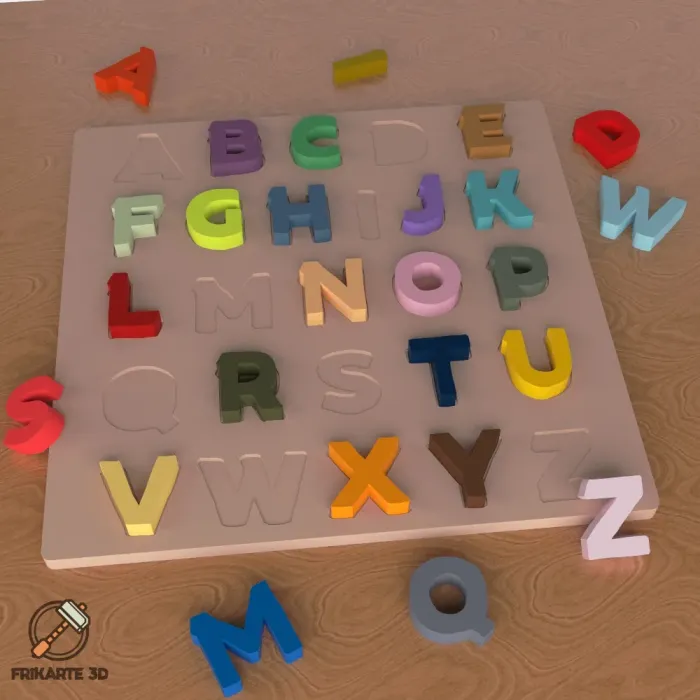
Young learners place each letter into its correct spot, practicing letter recognition in a playful way. Besides, students can print the pieces in bright colors and arrange them in any order, making early literacy fun and custom-tailored for each child.
Biology
3D printing helps students see biology in ways textbooks can’t. By turning microscopic structures into physical models, students get to explore the parts of a cell or the shape of DNA up close.
3D Printed Cell Nucleus Model
For instance, 3D printing a detailed cell nucleus (or even an entire cell) lets students hold a model of what would normally be microscopic. They can examine organelle shapes and relative sizes in three dimensions.
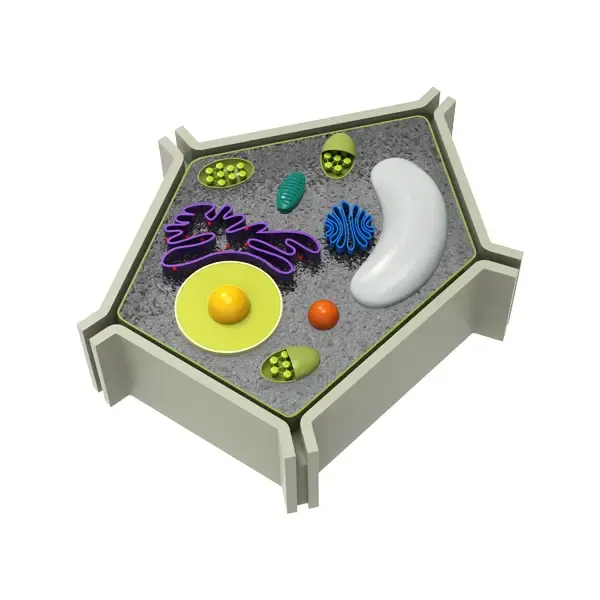
Students who used 3D-printed cell models showed significantly better understanding of cell size, surface area and diffusion than those who did not. In other words, a tangible cell model can make abstract biology concepts (like the nucleus, mitochondria, etc.) much clearer for learners.
Chemistry
Chemistry can feel abstract—until students get to build it. 3D printing brings the elements off the page and into students' hands.
Periodic Table of Elements
A 3D-printed periodic table is a fantastic chemistry project. In one classroom example, each student designed a cube for a chemical element using Creality Print. They engraved the element’s name, symbol, atomic number, and fun facts onto a 40×40×40 mm. When all cubes are printed (often in color-coded groups), they assemble into a full 3D periodic table.
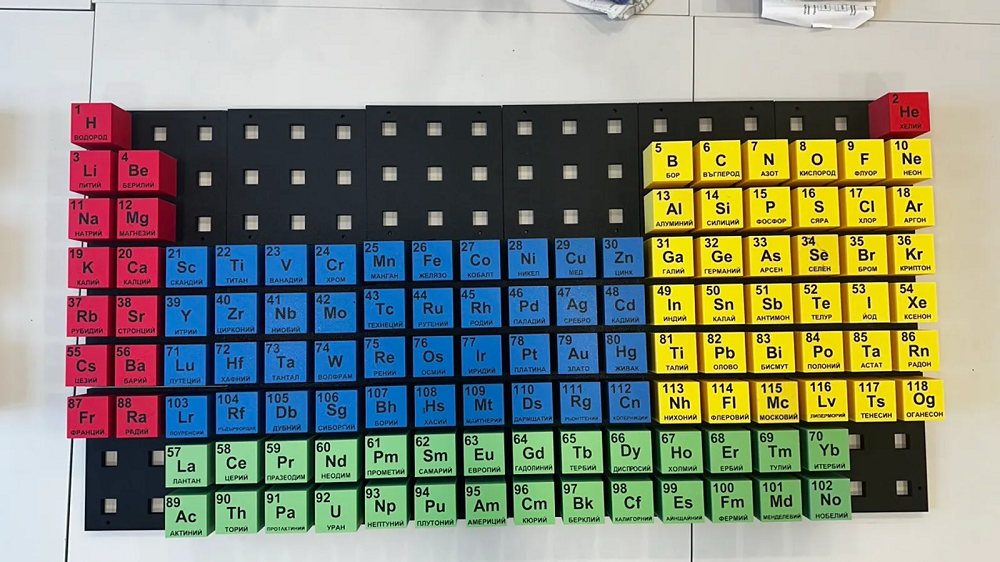
As they fit their blocks into the table, students took pride in seeing their own work become part of the class’s giant periodic chart. This project combines research (each student learns about their element) with design (creating the 3D block) and teamwork (assembling the table).
Math
Numbers come alive when students can touch and move them. 3D printing is perfect for building interactive math tools.
Abacus
A 3D-printed abacus provides a tactile way to practice counting and place value. This design has ten beads per rod, making arithmetic interactive.
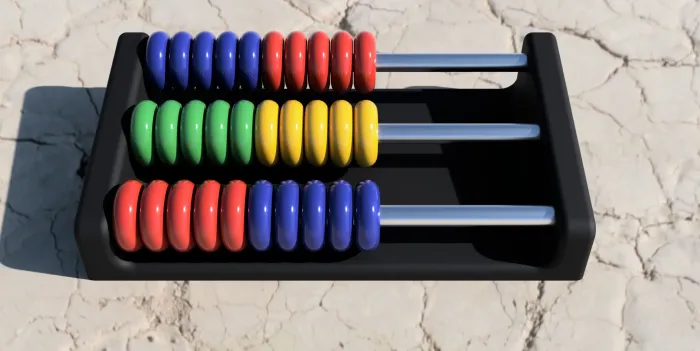
This click-and-bump system gives users tactile and auditory feedback, turning a simple counting tool into an inclusive learning device. Students use the abacus to add, subtract and understand place value by physically sliding beads, which reinforces math concepts in a multi-sensory way.
Multiplication table
For multiplication practice, 3D printing lets students build customized number grids or puzzles. For example, one project prints a half-completed 3D printed multiplication chart as a template that students fill in with removable number pieces.
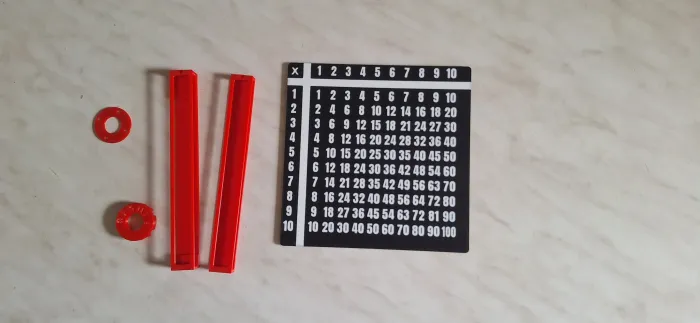
Educators agree that physical manipulatives improve math comprehension. Holding or fitting together 3D-printed number cubes or interlocking pieces helps students visualize multiplication relationships in a concrete way.
Protractor
Geometry also benefits from 3D printing. Students can print their own protractors or angle-measuring tools with any desired size or markings.
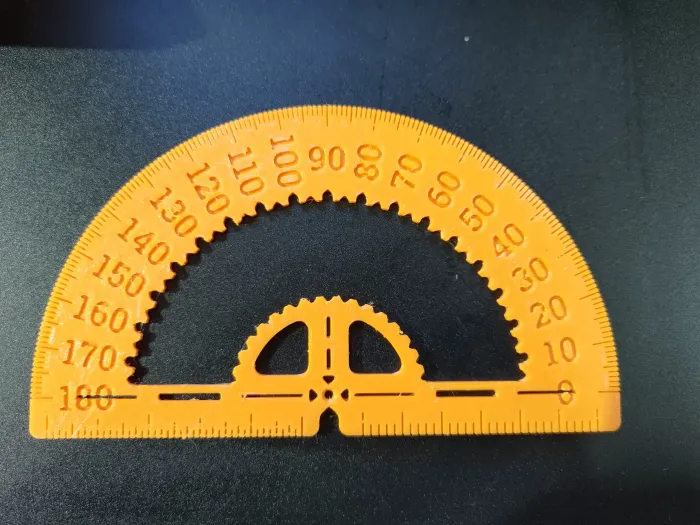
Having a custom 3D protractor or angle gauge in hand can turn a geometry lesson into a hands-on experience. Customizable and durable, it helps students better understand geometry concepts through direct interaction—making lessons more engaging and practical.
Geography
3D printing brings geography to life by turning maps and globes into interactive learning tools. With 3D printing, students don’t just read about the world—they can hold it.
Educational earth model
A 3D globe or Earth model helps geography come to life. For example, printing a globe with raised topography lets students feel mountain ranges, ocean trenches, and continental boundaries under their fingers.
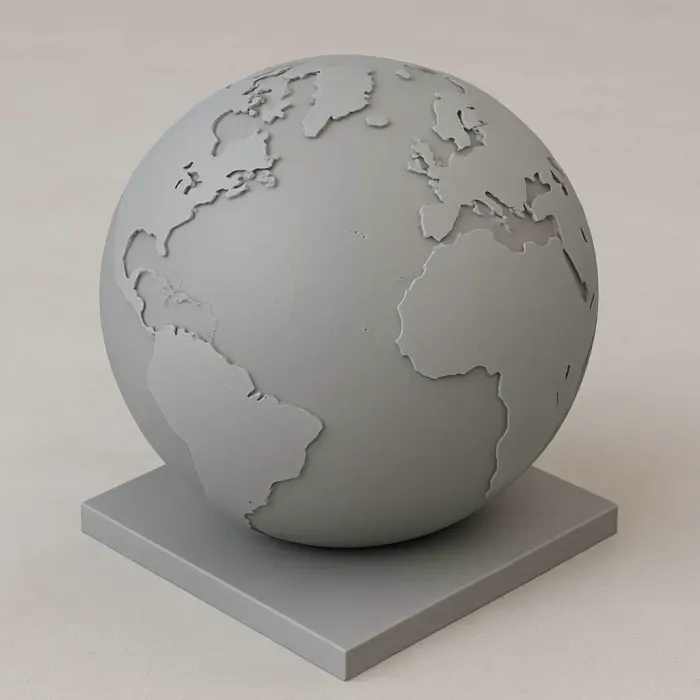
Repositories of 3D models already include “geography puzzles” and globes in their education sections, indicating these tools are recognized as valuable for tactile learning. Even a simple ball-shaped globe with continents helps students grasp world geography in 3D that a flat map cannot provide.
USA map puzzle
A 3D-printed USA map puzzle makes learning state locations hands-on. Each of the 50 states is a separate piece, labeled and color-coded.
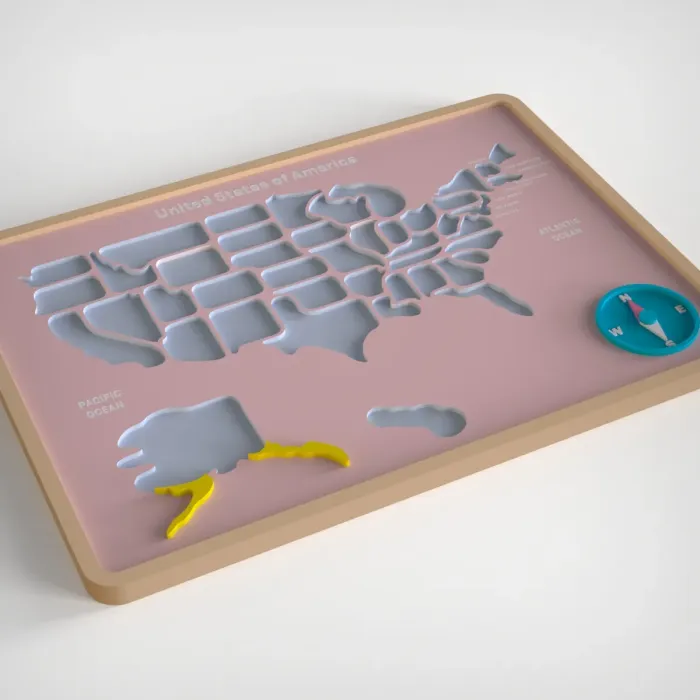
In this model, each state is printed as a colored piece engraved with its name. Students place the pieces into the base map. Children get a complete picture of the country. Fitting the pieces together reinforces state shapes and locations in a fun, interactive way.
Other Accessories
Beyond subject-specific tools, 3D printing also offers practical and creative accessories for everyday school use. Not every model has to be tied to a subject. Sometimes the most useful prints are the ones that keep students organized, motivated, and creative.
Spirograph drawing template
A 3D printed spirograph lets students explore art and geometry at once. Students insert a marker into a gear and turn it to see different shapes form.
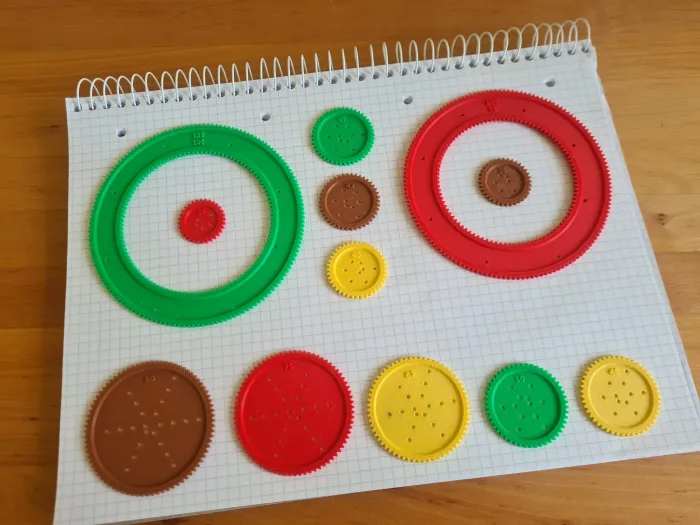
Building or printing the gears introduces mechanical design, while using the spirograph reinforces patterns and symmetry in math and art.
Pen holder
Simple desk accessories can be 3D printed too. A hyperboloid pencil holder design creates a stylish stand for pencils or pens. This holder stacks pens in a twisting, open lattice. Students can decorate their holders or print them in school colors.
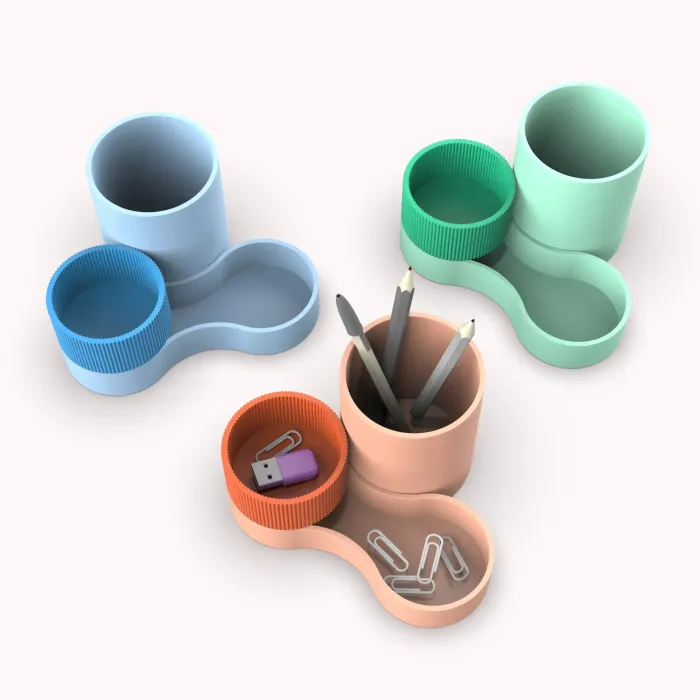
Customized pen/pencil cases and holders make organizing supplies more personal and can even be class projects in design or engineering classes.
Pencil case
A customized 3D-printed pencil case adds fun to school organization. This compact, creative container holds students’ pens and pencils while showing off their printing skills.
Students can personalize it with colors or name tags as a back-to-school project. It’s a reminder that 3D printing can be both practical and personal—even in everyday school supplies.
Worm bookmark
A playful 3D-printed worm bookmark encourages reading. This “bookworm” clips onto a page so students can easily mark their spot.
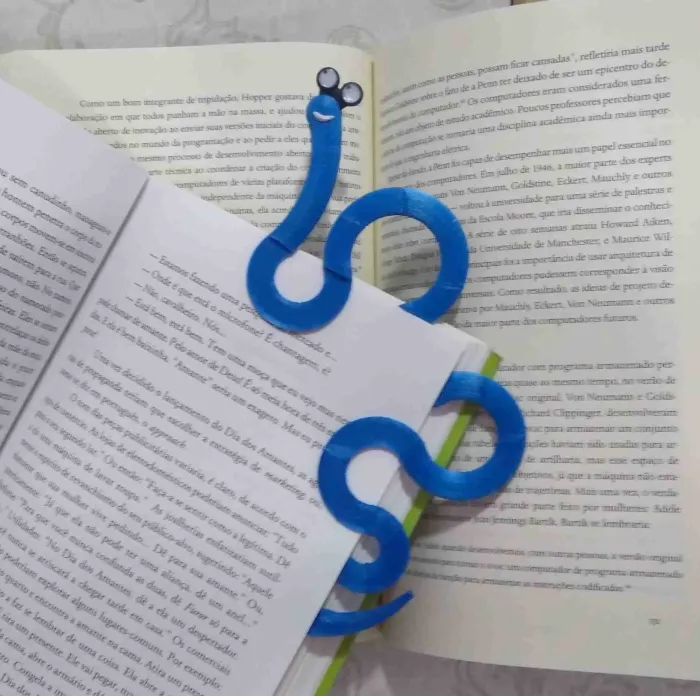
Students can print them in bright colors for a reading reward. While simple, this accessory reminds learners that 3D printing isn’t just for big projects.
Where to Find These 3D Printing Ideas for Students
You might be wondering: where can I find these models? One of the best platforms out there is Creality Cloud, which has a dedicated Education category filled with student-friendly STL files—many of them free.
Creality Cloud
Creality Cloud is a go-to platform for teachers and students looking to bring 3D printing into the classroom. With thousands of free models to choose from, it simplifies the process of finding fun, ready-to-print educational tools.
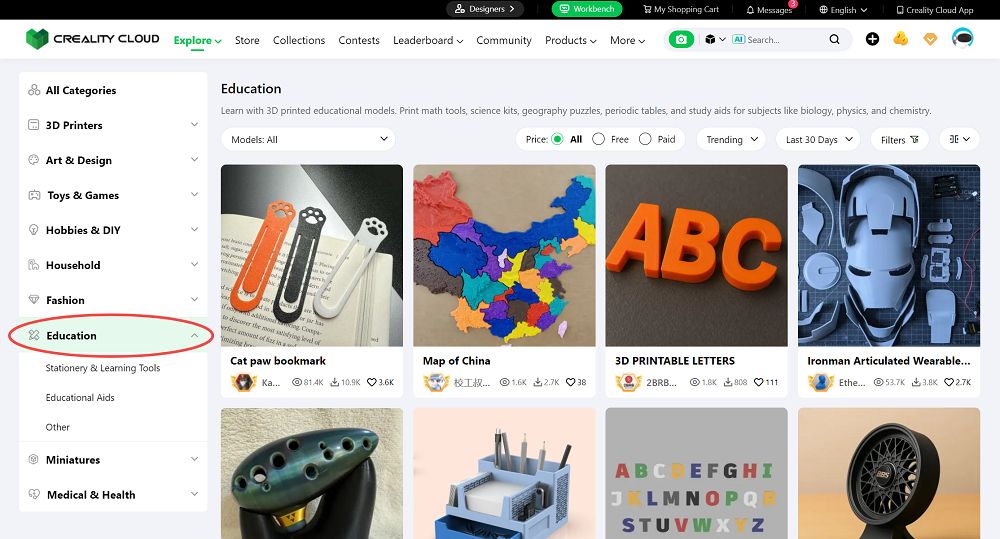
Its Education section features exactly the kind of content teachers need: periodic tables, science kits, math tools, geography puzzles, and more. Models like the Alphabet Board Game and Bookworm Bookmark came directly from this platform—just a click away from your printer.
Conclusion
We’ve just looked at 12 creative and practical 3D printing ideas that can bring learning to life. As the new school year approaches, it’s the perfect time to explore how 3D printing can fit into your classroom or homeschool setup. Whether you're a teacher, student, or parent—there’s never been a better moment to print, learn, and create.
Need help picking the right 3D printer? Check out our 3D printer buying guide to find the best model for your learning space. Let’s make this school year more creative, more hands-on, and more fun—with 3D printing.
